Super User
Metso Outotec and Cyriac Tor Ltd to provide slurry pump solutions in the UK
Metso Outotec has appointed Cyriac Tor Ltd as a distributor of Metso Outotec’s pumps in the UK. The distribution agreement covers Metso Outotec’s slurry pumping solutions, including slurry pumps, spare parts, seals and hoses, commissioning, service contracts, and technical support to all industry sectors in England, Scotland, and Wales. The contract has come into effect in September 2021 and will run alongside all existing distribution agreements.
 “We are very pleased to announce the partnership with Cyriac Tor,” says Saso Kitanoski, President, Europe in Metso Outotec. “This partnership allows us to extend our presence in multiple industry sectors within this key market. With Cyriac Tor’s local presence and extensive knowledge, we will be able to expand the level of support we give to customers as well as increase our presence in industrial processes.”
“We are very pleased to announce the partnership with Cyriac Tor,” says Saso Kitanoski, President, Europe in Metso Outotec. “This partnership allows us to extend our presence in multiple industry sectors within this key market. With Cyriac Tor’s local presence and extensive knowledge, we will be able to expand the level of support we give to customers as well as increase our presence in industrial processes.”
"Cyriac Tor Limited is very happy to work alongside Metso Outotec, with an enlarged territory, looking forward to increasing our customer base and supplying a top class service," says Cyriac Tor Ltd. Managing Director, Ben Oliver.
“Our target was to find a partner who could help us better serve process industry customers requiring market-leading slurry pumping solutions,” comments Greg Dixon, European Pump Sales Director at Metso Outotec. He continues, “By holding both equipment and local inventories with an increased service capability, we will be able to offer our customers a world-class, responsive service.”
Cyriac Tor Ltd. has many years of experience in the design and service of slury pump equipment, making them specialists in the field. Read more at their website: http://www.cyriac-tor.co.uk/
Metso Outotec is a frontrunner in sustainable technologies, end-to-end solutions and services for the aggregates, minerals processing and metals refining industries globally. By improving our customers’ energy and water efficiency, increasing their productivity, and reducing environmental risks with our product and process expertise, we are the partner for positive change.
Metso Outotec is committed to limiting global warming to 1.5°C with Science Based Targets. We ranked 8th on the 2021 Global 100 list of the world’s most sustainable companies.
Headquartered in Helsinki, Finland, Metso Outotec employs over 15,000 people in more than 50 countries and its sales for 2020 were about EUR 3.9 billion. The company is listed on the Nasdaq Helsinki. mogroup.com
Autonomous vehicles to enhance safety at sawmills
With the help of Semcon, two of Sweden’s largest companies in the forest industry sector, Holmen and Södra, are to examine how self-driving vehicles can improve the work environment and enhance safety at sawmills and other industrial sites. This type of vehicle has great potential for transporting timber and sawn wood within the sites.
Semcon’s autonomy specialists will join forces with the management of production development at Holmen and at Södra to carry out a feasibility study starting autumn 2021. This will include process mapping to identify which of the processes is best suited for autonomy, as well as develop a concept solution and make an assessment of the potential of the technology. If the feasibility study is successful, a pilot project will be planned to test the solution in live production with the aim of putting autonomous vehicles into operation in the future.

“Large, heavy vehicles are used at sawmills in an environment where it is currently unavoidable for them to mix with pedestrians, which could create a risky situation. We can use autonomous vehicles with advanced sensor and AI technology to create safer workplaces, while improving the quality of the activities”, says Mats Larsson, Software & Emerging Tech, Semcon.
Great potential for autonomous vehicles
Both Holmen and Södra carry out long-term and ambitious safety work at their sawmills. There is much to gain through new technology when it comes to areas such as quality, safety, and electrification. This is because even though the production part of a sawmill is often highly automated, there is still great potential for autonomous vehicles to provide transport within the site.
“At Holmen, we are continuously exploring new technology and innovative solutions in order to develop our activities. To ensure the safety of our employees is obviously a top priority for us, and we would therefore like to explore the potential of autonomous vehicles”, says Magnus Malmström, site manager at Holmen’s sawmill in Iggesund.
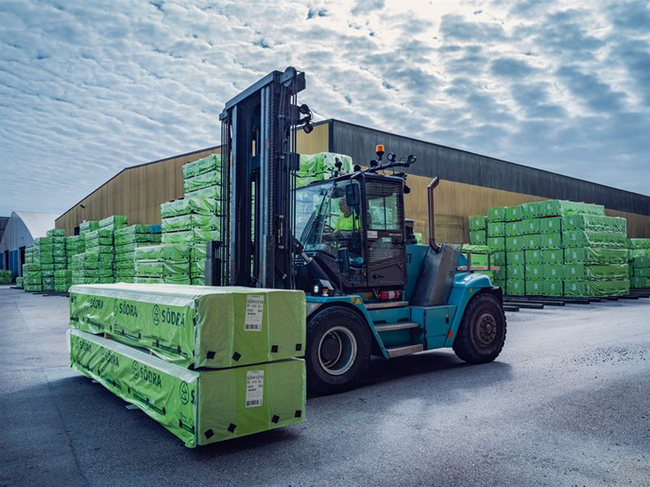
Autonomy, the next technological leap forward
“In addition to improving the work environment and enhancing safety, self-driving vehicles have proved to be well suited for electrification, which we consider to be an important part of our sustainability work as well as something that benefits our industry”, says Tomas Bengtsson, Director Production Engineering, Södra Wood.
Semcon has extensive experience of developing autonomous solutions in the automotive industry, and recognises the great need for this type of competence in many different industries. In addition to the automotive and forest industry sectors, Semcon also works with autonomous solutions in mining, ports and airports, among others. Read more about Semcon’s offering in autonomous solutions.
The feasibility study will be carried out at Holmen’s sawmill in Iggesund and at Södra’s sawmill in Väröbacka.
Semcon is an international technology company. We turn technology into excellent user experiences by combining digital edge and engineering expertise. With diverse multi-disciplinary teams we add new perspectives creating sustainable and competitive businesses. Regardless if you aim to recharge a current product or service, reinvent new technology or reimagine future needs, our focus is always on human needs and behaviour in order to develop solutions with the clearest benefits to people and our planet. By combining our 40 years of advanced engineering, strategic innovation, digital services and product information solutions, we drive transformation in a wide range of industries with more than 2,000 dedicated employees based in seven different countries. Read more on www.semcon.com
Tecnocap and BASF “seal the deal”: Metal closures for food packaging are now manufactured with BASF’s biomass balanced plasticizer Hexamoll® DINCH BMB
Tecnocap, an Italian-based global metal packaging manufacturer, utilizes BASF’s non-phthalate plasticizer Hexamoll® DINCH BMB for sealing gaskets inside its metal closures. Sealing gaskets ensure leak-proof containers, protect products from contaminants and preserve product quality throughout a long shelf-life. The metal closures of Tecnocap are used by some of the biggest consumer brands in food, baby food and beverage packaging worldwide.
- BASF’s trusted non-phthalate plasticizer based on renewable raw materials contributes to saving fossil resources and carbon emissions
- Tecnocap’s proven closure quality remains and ensures a superior sealing performance in this sensitive food-contact application
Tecnocap is strongly committed to pioneering innovative and sustainable packaging solutions. Specialized teams work together with suppliers and the world’s best-known consumer brands to improve existing products and reach sustainability targets. To meet customer expectations for transparency and sustainability, the company has chosen BASF’s biomass balanced plasticizer Hexamoll® DINCH BMB.
“Working together with customers and suppliers like BASF to enhance packaging sustainability credentials is a strategic focus for us. With the introduction of the Life Cycle Assessment approach and obtaining an Environmental Product Declaration (EPD), we can measure the environmental impacts of metal closures and reduce their impact according to our Sustainability Action Plan, which aims at considerably reducing the CO2 emissions by 2030,” says Michelangelo Morlicchio, CEO and President at Tecnocap Group. He adds: “This initiative is in tune with consumer trends and reflects our commitment to manufacturing more responsible packaging solutions.”
 Metal closures for glass jars, for e.g. baby food, contain a sealing insert. This ensures that the vacuum remains inside the glass, which is crucial to guarantee the minimum shelf life of the contained product. Tecnocap uses Hexamoll® DINCH BMB in their sealing inserts.
Metal closures for glass jars, for e.g. baby food, contain a sealing insert. This ensures that the vacuum remains inside the glass, which is crucial to guarantee the minimum shelf life of the contained product. Tecnocap uses Hexamoll® DINCH BMB in their sealing inserts.
Using Hexamoll® DINCH BMB contributes to this ambitious sustainability target as the plasticizer has a lower carbon footprint compared to the regular plasticizer and helps to save fossil resources. In the production of Hexamoll® DINCH BMB, BASF uses bio-naphtha or biogas instead of fossil resources. These materials are derived from organic waste or vegetable oils. As the renewable raw materials are processed together with conventional feedstock in BASF’s existing efficient production network, the renewable material is allocated to the final product according to the biomass balance approach (BMB). Both the allocation process and the product itself, are certified by independent auditors according to the RedCert2 standard. The specifications and technical properties are identical to those of the conventional plasticizer. Therefore, the proven product quality of Tecnocap’s metal closures remains and a superior sealing performance is ensured.
Wolfgang Bien, Vice President of Industrial Petrochemicals Europe at BASF explains: “We as BASF share Tecnocap’s commitment to sustainability and are currently implementing numerous measures to reach our goal of becoming climate-neutral by 2050. The biomass balance approach is one pillar of our carbon management program, which has a major impact on CO2 emissions and the saving of fossil resources. Both aspects are crucial to overcome the climate challenges of today. Therefore, we are pleased to partner with Tecnocap.”
About BASF
At BASF, we create chemistry for a sustainable future. We combine economic success with environmental protection and social responsibility. More than 110,000 employees in the BASF Group contribute to the success of our customers in nearly all sectors and almost every country in the world. Our portfolio is organized into six segments: Chemicals, Materials, Industrial Solutions, Surface Technologies, Nutrition & Care and Agricultural Solutions. BASF generated sales of €59 billion in 2020. BASF shares are traded on the stock exchange in Frankfurt (BAS) and as American Depositary Receipts (BASFY) in the U.S. Further information at www.basf.com.
About BASF’s Petrochemicals division
The Petrochemicals division is the starting point for BASF’s petrochemical-based value chains globally. We operate a highly competitive asset base with best-in-class technologies and set the benchmark in safety, sustainability, operational excellence and cost competitiveness. With six interconnected sites and several major production sites, we are close to our customers and present in the largest chemical markets worldwide. The division supplies various value chains across the company and a broad range of customer industries with high-quality chemicals, putting our customers in the center of everything we do and contributing to the organic volume growth of BASF. Our portfolio includes cracker products, industrial gases, acrylics, superabsorbent polymers, styrenic foams, alkylene oxides, glycols, alcohols, solvents and plasticizers. In 2020, the Petrochemicals division generated sales to third parties of about €5.4 billion. Further information is available online at www.petrochemicals.basf.com.
About Tecnocap
Tecnocap is a global metal packaging manufacturer, specialized in metal closures for glass jars and plastic containers. Here, they are the third biggest producer of closures for food, baby food and beverage packaging. The Group is also emerging as a global leader for integrated packaging solutions, i.e. aluminum monobloc aerosol cans and aluminum bottles for some of the world’s best-known consumer brands in food, beverages, spirits, cosmetics, nutraceuticals, pharmaceuticals, industrial and household products. Corporate website: www.tecnocapgroup.com.
A Zero Carbon Roadmap for Kazakhstan
Kazakhstan committed to achieve zero carbon dioxide emissions by 2060 at a UN Summit last year. Funded by the World Bank, RINA has been awarded a contract as part of this process to carry out a series of energy reviews and analyses of different industrial sectors. The work will be carried out across the food & beverage, transport manufacturing, chemical and metallurgy industries and is seen as a crucial step as part of the overall strategy to reduce greenhouse gas (GHG) emissions. As a result of the work, RINA will be proposing complementary input into legislation and value-add initiatives to reduce energy usage and lower emissions.
RINA was selected to carry out the work based on its experience in decarbonization processes and commercial offering. It is working as leader of the consortium with INTEGRATION Umwelt & Energie GmbH in Germany, which has expertise in the metallurgy sector and Energy Partner LLP in Kazakhstan, which will be providing personnel to support interaction and exchange with local stakeholders.
The project will provide a structural approach across heavy industry to propose solutions to meet the target for zero carbon emissions. Decarbonization is one of the main strategic pillars of the RINA business and it brings over 15 years of experience in working to enhance energy efficiency.

RINA and its partners will carry out four tasks as part of the contract using a team of around 20 professionals including project managers, technical specialists, and industrial and international experts. Audits will be carried out using a software application developed by RINA to assess selected businesses within the industrial sectors covered. It will then carry out training of local energy auditors to establish ongoing capability for Kazakhstan to carry out further audits going forward.
Based on the results of each sector analysis, RINA will aggregate additional data gathered on a national level and from other industry auditors to identify investments required for the decarbonization process. The final task will be a presentation of the results of the analysis and sharing of what has been learned at a workshop. The project, which started in May 2021, is scheduled to be completed by the end of the year.
Leonardo Brunori, Energy & Mobility Executive Vice President at RINA, said, “The Kazakhstan government is committed to the reduction of GHG. This analysis, based on real-world data, will provide important strategic input towards meeting its targets. The main way to reduce GHG emissions is to save energy and use more renewables, but this project will also provide Kazakhstan with greater sustainability through better use of local resources and real economic benefit to the industries involved, enabling them to be more competitive both locally and internationally. We need to mitigate the effects of climate change, but it is also useful to recognize the benefits this work will deliver to local industry and local people.”
RINA provides a wide range of services across the Energy, Marine, Certification, Transport & Infrastructure and Industry sectors. With net revenues in 2020 of 495 million Euros, over 4,000 employees and 200 offices in 70 countries worldwide, RINA is a member of key international organizations and an important contributor to the development of new legislative standards. www.rina.org
Munters signs strategic turnkey project to deisgn and build Scandinavian lithium battery laboratory
The climate change is driving the globally growing demand for lithium batteries. Munters has signed a strategic turnkey project to design and build a lithium battery laboratory in Scandinavia. This is yet another confirmation of Munters’ position as a leading supplier to manufacturers of lithium batteries.
 The agreement entails that Munters will design and build a full-scale laboratory for lithium batteries in Scandinavia. A key requirement for the client was Munters’ capabilities to design the facilities along with competences to secure an efficient construction execution. This project will be delivered over the coming six months and the order value is estimated to MSEK 83.5.
The agreement entails that Munters will design and build a full-scale laboratory for lithium batteries in Scandinavia. A key requirement for the client was Munters’ capabilities to design the facilities along with competences to secure an efficient construction execution. This project will be delivered over the coming six months and the order value is estimated to MSEK 83.5.
Lithium battery production requires a highly controlled environment with stable temperature and humidity in order to guarantee high quality in the end-product and safety in production. Munters is a clear leader in complete climate solutions for production of the world’s lithium batteries to the auto industry. Munters provides a better air environment for their sensitive processes along with lower energy costs and reduced carbon emissions.
“Sustainability and focus on reduced CO2 emissions are clear megatrends in society today, says Klas Forsström, President and CEO of Munters. “We foresee that the market’s strong focus on sustainability will continue to drive the increasing demand for lithium batteries. Munters has leading solutions for lithium battery suppliers and is a key enabler in the global roll-out of energy-efficient, high-performance battery facilities.”
About Munters Group
Munters is a global leader in energy efficient air treatment and climate solutions. Using innovative technologies, Munters creates the perfect climate for customers in a wide range of industries. Munters has been defining the future of air treatment since 1955. Today, around 3,500 employees carry out manufacturing and sales in more than 30 countries. Munters Group AB reported annual net sales of more than SEK 7 billion in 2020 and is listed on Nasdaq Stockholm. For more information, please visit www.munters.com.
Dry Molded Fiber network continues to grow as PulPac partners with RZ Group
PulPac reveals partnership with RZ Mekpart and the RZ Group of specialized engineering contract manufacturers, further extending capabilities, expertise, and capacity of the Dry Molded Fiber network.
The objective of the partnership between RZ and PulPac is to combine significant industrial experience, secure machining, and manufacturing capabilities as well as spread know-how on tooling for Dry Molded Fiber.

“RZ is proud to partner with PulPac, bringing a network of leading manufacturing entities in Sweden and providing support with our extensive expertise into efficient tooling construction and machine processing.
We see strong market forces towards replacing plastics, especially from consumers, and that Dry Molded Fiber is a very promising substitute that can compete on cost and sustainability” comments Lars Kihlström, CEO at RZ Mekpart AB.PulPac continues to expand the network and take holistic responsibility to secure upstream and downstream applicability of the technology. Together with RZ, the Dry Molded Fiber Community can now benefit from significantly increased tooling capacity, leading to shorter lead times and quicker time to market.

“We welcome RZ Mekpart and the RZ Group as a trusted partner in tooling production. Our efforts to scale supply chain and build partnerships with leading players in the value chain continues to yield advantages for the Dry Molded Fiber community. These partnerships and the collaborative approach are essential to enable scaling in support of the on-going global transition to fiber and away from single-use plastics. We welcome all parties in the value chain to join the community and support the transition to sustainable packaging and single-use products” comments Linus Larsson, Chief Executive Officer at PulPac.
About RZ Group & RZ Mekpart AB
The RZ Group consists of twelve accomplished companies for specialized engineering. An optimal subcontractor and system partner. RZ Mekpart AB is a modern, full-service business founded in 1976. Today we have 50 employees and have a wide business offer based on specialized expertise. Our range runs from prototypes to long-series production and assembly of complex parts. Our business concept is to identify what our customer needs and find fast, effective, and affordable solutions. We do this by leveraging extensive resources and expertise combined with the flexibility of being a small company. RZ Mekpart AB has quality and environment certifications. www.rzg.se

About PulPac
PulPac provides the packaging industry with a groundbreaking manufacturing technology for low-cost, high-performance fiber-based packaging and single-use products. By pioneering the technology of cellulose molding PulPac enables their customers to replace single-use plastics with a sustainable and cost competitive alternative globally. www.pulpac.com
About Dry Molded Fiber
Dry Molded Fiber, invented and patented by PulPac, is a manufacturing technology designed for the circular economy – using renewable pulp and cellulose resources to produce low cost, high performance, fiber-based packaging, and single-use products. Dry Molded Fiber gives up to 80-90% lower CO2 footprint at similar cost as plastic. It is up to ten times as efficient as conventional fiber molding invented over 100 years ago. The dry process also saves massive amounts of valuable water resources. In addition, energy savings are significant - as the molded products need no drying.
TotalEnergies and Safran Create a Strategic Partnership to Accelerate the Decarbonization of the Aviation Industry
TotalEnergies and Safran have signed a strategic partnership agreement to jointly develop technical and commercial solutions for the decarbonization of the aviation industry.
In line with the ambition of both companies to reach net zero CO2 emissions by 2050, this major partnership aims to accelerate the reduction of the CO2 emissions of the aviation industry. Sustainable aviation fuel (SAF) plays a key role in this approach.
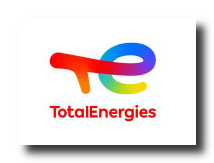 The collaboration will leverage Safran and TotalEnergies’ respective areas of excellence and expertise for the development and deployment of sustainable aviation fuels and develop an informed understanding of the overall value chain and use cases, while integrating the objectives of sustainable development altogether.
The collaboration will leverage Safran and TotalEnergies’ respective areas of excellence and expertise for the development and deployment of sustainable aviation fuels and develop an informed understanding of the overall value chain and use cases, while integrating the objectives of sustainable development altogether.
In the short term, the partnership aims to make current engines compatible with fuel containing up to 100% SAF. Longer term, it will then work to optimize engine/fuel energy efficiency and environmental performance.
This collaboration may extend to other fields, such as adapting fuel systems to SAF or developing new-generation battery systems for electric motors.
The agreement focuses on three key areas:
- Research, technology and innovation, with the development of technological bricks validated through ground tests of propulsion systems and demonstrator flight tests of engines.
- Supply of sustainable aviation fuels produced in France by TotalEnergies to decarbonize Safran’s airplane and helicopter engine tests in France.
- Dialogue and promotion, through initiatives to raise awareness among public and private players in France, Europe and worldwide.
Patrick Pouyanné, Chairman and Chief Executive Officer of TotalEnergies, declared: “We are pleased to join forces with Safran to help meet the challenge of decarbonizing the aviation industry together. This strategic alliance will contribute to the emergence of a French value chain for sustainable aviation fuel and electric aircraft. TotalEnergies is resolutely committed to reducing its own carbon emissions and to supporting its customers in their reduction efforts by offering innovative, tailored solutions. We believe that cooperation among all aviation industry players is needed to achieve the objectives of the energy transition to reach carbon neutrality.”
Olivier Andriès, Chief Executive Officer of Safran, said: “I welcome this agreement, which is fully in line with Safran’s strategic priority to decarbonize aviation. Our ambition is to develop breakthrough technologies for ultra-efficient engines that are 20% more fuel-efficient than the current LEAP engine and 100% compatible with sustainable fuels. This cooperation with TotalEnergies demonstrates our commitment to limiting our environmental footprint, contributing to carbon neutrality in the aviation industry, and preserving a mode of transportation that delivers essential economic, social and cultural benefits.”
Sustainable aviation fuels are an immediately available solution for significantly reducing CO2 emissions from air transportation, as they can be used in blends of up to 50% as of today without modifying existing supply chain infrastructure, aircraft or engines. Safran is a key player in projects that will allow the use of 100% SAF in existing aircraft.
French legislation calls for aircraft to use at least 1% SAF by 2022 for all flights originating in France, while the European Commission calls for a ramp up to 2% by 2025 and 5% by 2030 as part of the European Green Deal.
TotalEnergies and Aviation
TotalEnergies is one of the leading aviation fuel suppliers in France, the rest of Europe and Africa, providing refueling services to nearly 280 airlines in more than 300 airports worldwide. The Company proposes a full range of products (SAF, Jet A-1, Avgas) and services tailored to each type of customer: business or leisure flights, aviation industry, airports, airlines, etc.
TotalEnergies is involved in numerous initiatives to produce and market sustainable aviation fuel in partnership with aviation industry partners. A dedicated Renewable Fuels Business Unit was created in 2021, and a new milestone was reached in May 2021 with the successful first flight of a long-haul aircraft powered by sustainable aviation fuel produced by TotalEnergies in France.
By developing and supporting the emergence of a sustainable aviation fuel value chain, TotalEnergies confirms the leadership role played by France and the rest of Europe in driving innovation in the energy and environmental transition.
About TotalEnergies
TotalEnergies is a broad energy company that produces and markets energies on a global scale: oil and biofuels, natural gas and green gases, renewables and electricity. Our 105,000 employees are committed to energy that is ever more affordable, clean, reliable and accessible to as many people as possible. Active in more than 130 countries, TotalEnergies puts sustainable development in all its dimensions at the heart of its projects and operations to contribute to the well-being of people.
About Safran
Safran is an international high-technology group, operating in the aviation (propulsion, equipment and interiors), defense and space markets. Its core purpose is to contribute to a safer, more sustainable world, where air transport is more environmentally friendly, comfortable and accessible. Safran has a global presence, with 76,000 employees and sales of 16.5 billion euros in 2020 and holds, alone or in partnership, world or regional leadership positions in its core markets. Safran undertakes research and development programs aligned with the environmental priorities of its technological innovation roadmap. Safran is listed on the Euronext Paris stock exchange, and is part of the CAC 40 and Euro Stoxx 50 indices. For more information: https://www.safran-group.com/
Wood Thilsted positively sets its stall out to be No.1 in America for offshore wind foundation design
Following its very warm reception at the recent International Partnering Forum (IPF) in Virginia - hosted by the Business Network for Offshore Wind – Wood Thilsted has underlined ambitious plans to secure the largest market share of foundation design in the USA.
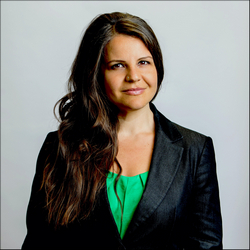 Hannah Abend - Chief Operating Officer at Wood ThilstedEstablished in 2015, but with a wealth of experience in its fast-growing team of structural and geotechnical experts, Wood Thilsted (who already have an office in Boston) is playing a key role with Vineyard Wind I, America’s first commercial-scale offshore wind farm.
Hannah Abend - Chief Operating Officer at Wood ThilstedEstablished in 2015, but with a wealth of experience in its fast-growing team of structural and geotechnical experts, Wood Thilsted (who already have an office in Boston) is playing a key role with Vineyard Wind I, America’s first commercial-scale offshore wind farm.
“Long-awaited political support and the development of the supply chain is extremely positive for the growth of offshore wind in the U S”, says Wood Thilsted’s Chief Operating Officer, Hannah Abend.
‘Colossal Achievement’
“We hear plenty of negativity already about the United States perhaps not meeting its offshore targets – and it might not – but what if it meets 90 or 95 per cent of its target?!”, she added. “That’s still a colossal achievement that would be a massive boost to jobs, the industry and decarbonizing the planet. I call that ‘positive’ – with Wood Thilsted’s early project engineering through detailed design work on course to play a huge role in the growth of America’s offshore wind industry”.
‘Wood Thilsted has the distinct advantage’
Abend cited three fundamental drivers for design of offshore wind farms: marine conditions (metocean), wind conditions (atmosphere, energy production) and soil conditions (seabed and ground properties) – stating that Wood Thilsted has the distinct advantage – unlike others - of having brought these key skills together in an optimised approach that offers an unrivalled competence.
“After some false starts, America’s offshore wind industry is about to spring out the blocks at full pelt”, says Abend. “We are rapidly partnering with numerous important organisations on everything from US licensing and permits to how best to tackle the challenge of the suitability of ports, transportation, installation and servicing. We’re a young company, but our expertise is going to put us at the heart of offshore wind in the U S”.
Mammoet loads-out mega main support frame module with 604 axle-lines of SPMT
Massive module loaded-out safely and to schedule
Mammoet has loaded out a main support frame (MSF) module in Thailand, using a significant 604 axle lines of SPMT at Aibel Thailand’s yard in Leam Chabang. This module was the largest ever fabricated by Aibel Thailand and the largest to be loaded-out in Thailand using SPMTs. The mega MSF module weighed approximately 14,500t, and at 16,258t with grillage.
As Mammoet has worked closely with Aibel Thailand in the last decade, assisting Aibel in almost all of their heavy transportation work, Mammoet was once again selected as the trusted partner to perform this record-breaking module transportation.
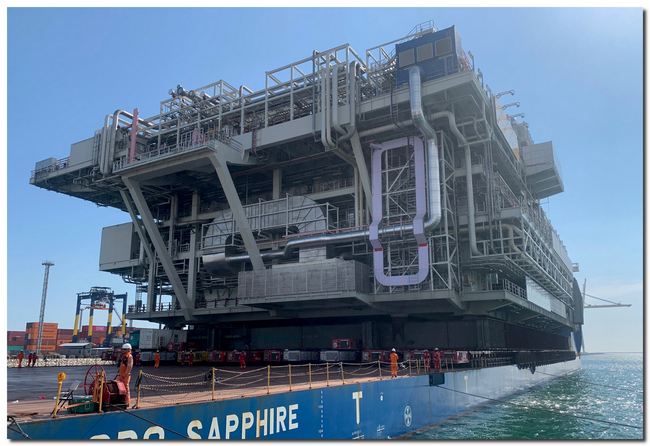 Strong coordination amongst Mammoet, Aibel and various other stakeholders were required for the load-out of this module onto the ship.
Strong coordination amongst Mammoet, Aibel and various other stakeholders were required for the load-out of this module onto the ship.
Mammoet’s global network of engineering expertise meant that it was able to provide Aibel with a project team made up of professionals from all over the world. The team included specialists from Thailand and Mammoet’s Global Offshore Services division, who were in charge of weighing the module, while mechanics and supervisors from Australia, Malaysia, Netherlands and Thailand covered the site move and load-out execution using the SPMT trailers.
The 604 axle lines of SPMT and 21 PPUs were sourced from various depots in Asia-Pacific, Africa and the Middle East. It was a logistical challenge for the team to bring in such a significant number of SPMTs from different locations due to COVID-19 restrictions, which complicated shipping schedules. Nonetheless, all equipment was mobilized on time, and all trailers were assembled weeks before the load-out took place. The team’s strong technical expertise ensured all axle-lines functioned together and are ready on time.
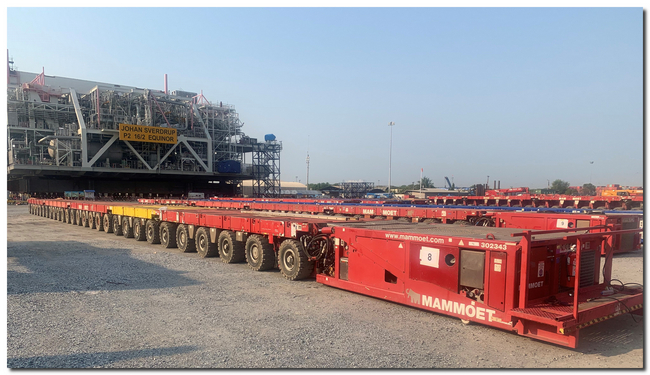 Despite logistical challenges brought about due to COVID-19 restrictions, the team ensured all 604 axle lines were mobilized and connected weeks before the load-out took place.
Despite logistical challenges brought about due to COVID-19 restrictions, the team ensured all 604 axle lines were mobilized and connected weeks before the load-out took place.
On site, weighing of the MSF module was completed using Mammoet’s weighing system swiftly; within a day. Once the load cells were removed, the SPMT trailers were driven in position under the MSF module.
With the SPMTs in position and the hydraulic and electronic systems connected, the module was lifted up from the fabrication supports using the SPMTs’ suspension systems. The site move covered approximately 700m in distance to the load out quay, and it was completed the day before the load out onto the vessel took place.
The following day, Mammoet, Aibel and the crew of the vessel coordinated well to ensure load-out of this module went smoothly onto the ship. It took a few hours before the module was rolled onto the vessel and accurately aligned with the grillage.
Shimming and adjusting procedures were undertaken before the MSF module could be completely set down on the vessel. After this, the SPMT trailers were removed from underneath the module.
The mega MSF module has since been shipped to Norway and is now part of Equinor’s fifth platform for the Johan Sverdrup oil field. The oil field is expected to have a daily production capacity of up to 535,000 barrels by the end of this year.
Mammoet
Mammoet helps clients with Smarter, Safer and Stronger solutions to any heavy lifting or transport challenge. We aim to develop long term relationships in order to understand their businesses and challenges best, so we can realize the most efficient and cost-effective approaches. We have a unique global network and an unparalleled fleet of equipment. Through deep and longstanding engineering expertise and the highest quality and safety standards in execution we bring an intelligent and flexible approach to projects across a wide breadth of industry sectors. Clients trust us to help them achieve feats that were once considered impossible, and we have often broken records in doing so.
For more information, visit www.mammoet.com
Betolar and JA-KO Betoni to Develop a Low-Carbon Solution for Keliber’s Lithium Mine Side Streams
Quickly developed material technology company Betolar and JA-KO Betoni, a company reforming the concrete industry, are assisting Keliber, which is preparing a lithium mine in Kaustinen, Finland, in utilising the massive side streams typically produced in the mining industry.
Tailings produced as a side stream in Keliber’s minerals processing and analcime sand produced later in the lithium production process will be used in concrete production as aggregate at JA-KO Betoni’s plant in Kokkola, Finland.
The Geoprime® solution developed by Betolar will replace cement used as a binder in concrete production with blast furnace slag produced through a steel industry side stream in Raahe, Finland. Replacing cement will significantly reduce carbon dioxide emissions. Low-carbon concrete can be used, for example, in the structures of Keliber’s mine.
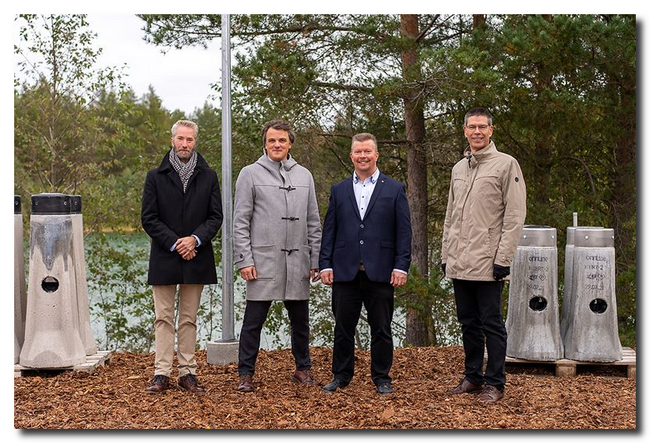 Matti Löppönen and Juha Leppänen from Betolar, Jaakko Eloranta, JA-KO Betoni, and Hannu Hautala, Keliber
Matti Löppönen and Juha Leppänen from Betolar, Jaakko Eloranta, JA-KO Betoni, and Hannu Hautala, Keliber
“Significant environmental benefits arise in two ways. Firstly, replacing cement with materials refined from industrial side streams will drastically cut CO2 emissions from the raw material, to as much as one-fifth of current levels. Secondly, the use of side streams as the aggregate for concrete instead of natural rock material significantly reduces the use of virgin natural resources,” says Innovation Director Juha Leppänen, the Founder of Betolar.
Different side streams, which must be reused or deposited, are produced in mining activities. Most of these side streams are put in a waste rock stockpile at the mining site. Material reuse saves virgin natural resources. From Betolar’s perspective, side stream materials are important future raw material sources whose utilisation in the more extensive industrial scale has only just started.
“We wanted to ensure well in advance that the environmental impact of our lithium mines will be as low as possible. Our future side streams will not only be environmentally safe but will also enable the creation of new products and reduction of the use of virgin raw materials,” says Hannu Hautala, CEO at Keliber.
The concrete industry produces a significant proportion of human CO2 emissions. The proportion of cement used in concrete production amounts globally to approximately seven per cent of the CO2 emissions whereas the proportion, for example, of air traffic in normal times amounts to 2–3 per cent. With Betolar’s solution, it is possible to reduce the CO2 emissions of raw materials by up to 80% in many concrete industry product groups.
“The concrete industry needs new solutions to reduce emissions. Together with Betolar, we are developing several products in which cement is replaced with binders that are considerably less burdensome for the environment. We will invest in the production of new, more environmentally-friendly concrete products in Kokkola, Finland, which will create significant competitive advantage for our industry,” says Jaakko Eloranta, CEO at JA-KO BetoniBetolar – Keliber – JA-KO Betoni
About Betolar
Betolar Oy is a Finnish material technology company that offers sustainable and low-carbon concrete production with Geoprime®. The solution converts several previously unused massive industrial side streams into a substitute for cement.
By optimising existing manufacturing processes, Betolar's AI-based innovation can significantly reduce CO2 emissions compared to traditional cement-based concrete production. The mission of Betolar is to enable the green transformation of different industries with its licensed solutions, especially in the construction, concrete, cement and mining industries. www.betolar.com
About Keliber
Keliber is a Finnish mining and battery chemical company that aims to start the sustainable production of battery-grade lithium hydroxide, utilising its own ore, in 2024. Lithium hydroxide is an essential component in lithium-ion batteries, which enable the electrification of transportation, the storage of renewable energy and speed up digitalisation.
Keliber operates in Central Ostrobothnia, Finland, where some of the most significant lithium deposits in Europe are found. The lithium mines are located in the municipalities of Kaustinen, Kokkola and Kruunupyy, where a concentrator is also being built. The chemical plant will be located in Kokkola Industrial Park, which has excellent transportation connections. The construction phase of the lithium project is scheduled to start in 2022.www.keliber.fi/en/
About JA-KO Betoni
JA-KO Betoni Ltd is a professional concrete company based in Kokkola, Finland. It has a total of 50 years of experience from the concrete industry. The company offers its customers a wide range of concrete products and ready-mixed concrete as well as different tailored service concepts in Finland and in export projects.
JA-KO Betoni has ready-mixed concrete plants in Kokkola, Pietarsaari, Närpiö, Mustasaari and Seinäjoki. The plant manufacturing concrete products, such as manhole rings, pole foundations and concrete weights, is located in Kokkola. The foundry in Pietarsaari casts agricultural elements and other special products to satisfy customer needs. JA-KO Betoni is an independent subsidiary of Ruskon Betoni. www.jakobetoni.fi/home/
